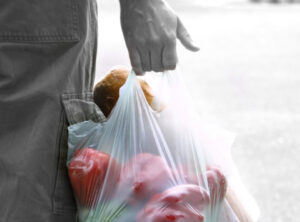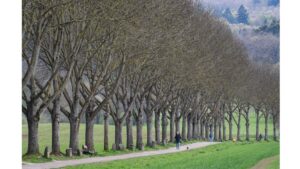
In November of 2020, the German Bundestag officially voted in favor of making an amendment to the Packaging Act. This amendment, effective since January 1st, 2022, prohibits plastic bags from being distributed at supermarkets and stores for shopping purposes. By banning plastic bags in Germany, the government aims to reduce carbon dioxide emissions and plastic pollution. According to the Federal Environment Ministry, the number of plastic bags used in Germany per year was 1.6 billion (about 20 per person) prior to the ban.
Environmentalists argue that the new law is not strict enough, as it only prohibits plastic bags that are 15 to 50 micrometers thick. Plastic carrier bags that are more than 50 micrometers thick are exempt from the ban because they are more durable and typically used multiple times. Ultra-thin bags used to hygienically handle open and easily perishable foods, such as fruits, vegetables, and meat products, are also still allowed in grocery stores. However, banning ultra-thin bags would likely give rise to an increase in pre-packaging waste and therefore create another environmental issue.
Other critics of the new law believe that it is either too strict or unnecessary altogether. A small store owner named Kostas Kallias explained in an interview with the Chinese Embassy in Germany that the government did not allow retailers enough time to deplete their remaining plastic bag stocks. He wanted the government to either compensate him for the money he had spent on plastic bags or push back the effective date of the ban. Bernhaud Bauske, the senior advisor of Germany’s marine conservation department at the World Wide Fund for Nature, stated that less than one percent of the amount of plastic production in Germany is for single-use plastic bags. This means that the German Bundestag could be focusing on the wrong culprit.
Although plastic bags have been banned in a number of states in the United States, including New Jersey, a nationwide ban would be difficult to implement for a number of reasons. In 2017, companies that manufacture plastic bags, such as Formosa Plastics and Novolex, employed close to one million Americans, making the plastic products industry the eighth largest industry in the United States. A nationwide ban would cause a great deal of job loss. According to reports made by the Fraser Institute, stores prohibited from distributing plastic bags are more likely to be faced with dips in sales because shoppers are limited to buying only what can fit inside their reusable bags. To combat the negative effects of a nationwide ban, the United States would need to figure out ways to efficiently re-employ one million Americans and make reusable bags more accessible to shoppers.
Sources:
https://www.plasteurope.com/news/PLASTIC_CARRIER_BAGS_t246462/
https://www.take-e-way.com/news/bundestag-decides-to-ban-plastic-carrier-bags/
https://newseu.cgtn.com/news/2021-01-04/Germany-moves-to-reduce-plastic-pollution-with-bag-ban-from-2022-WL3ksd2JfG/index.html
https://www.dumpsters.com/blog/plastic-bag-bans

